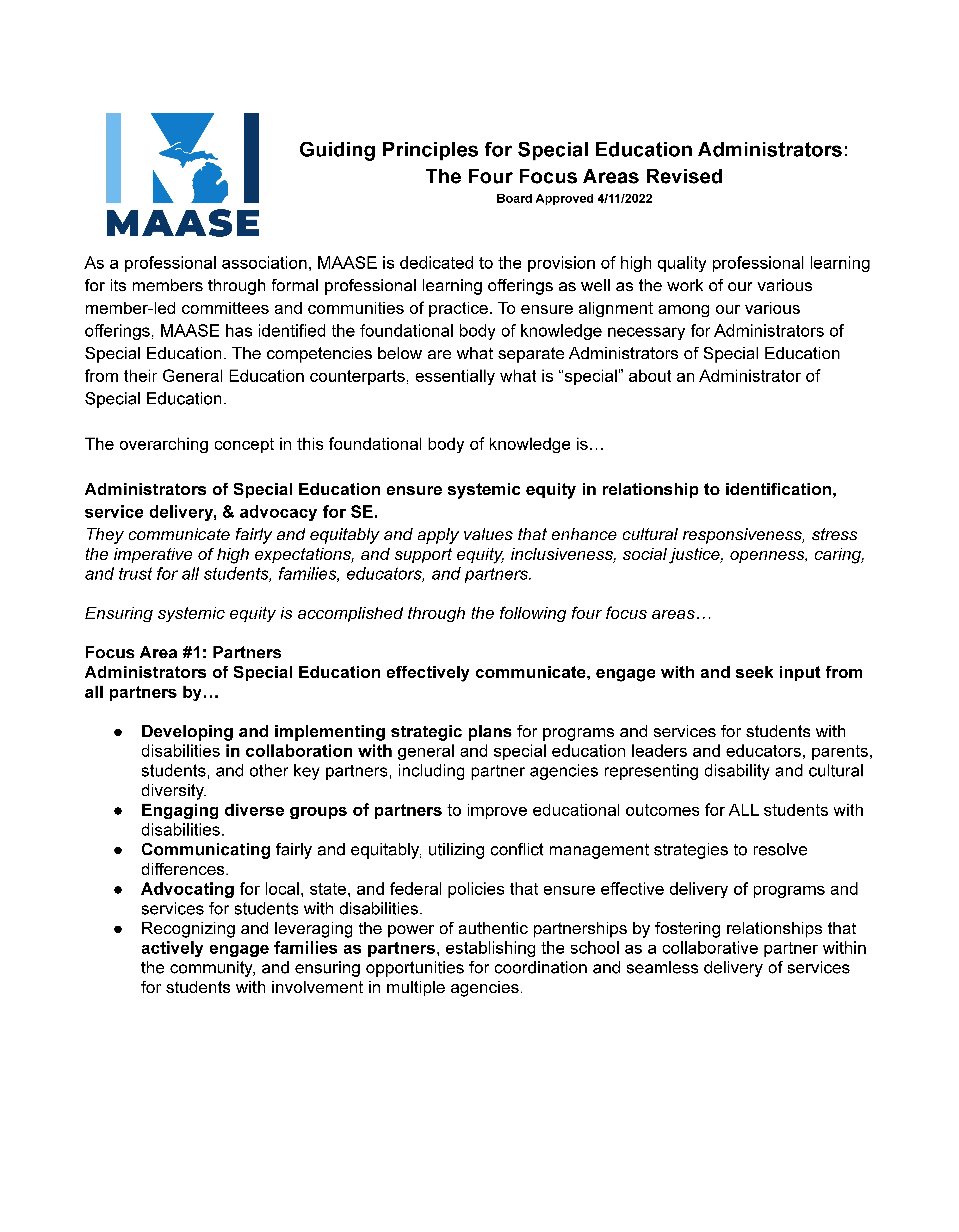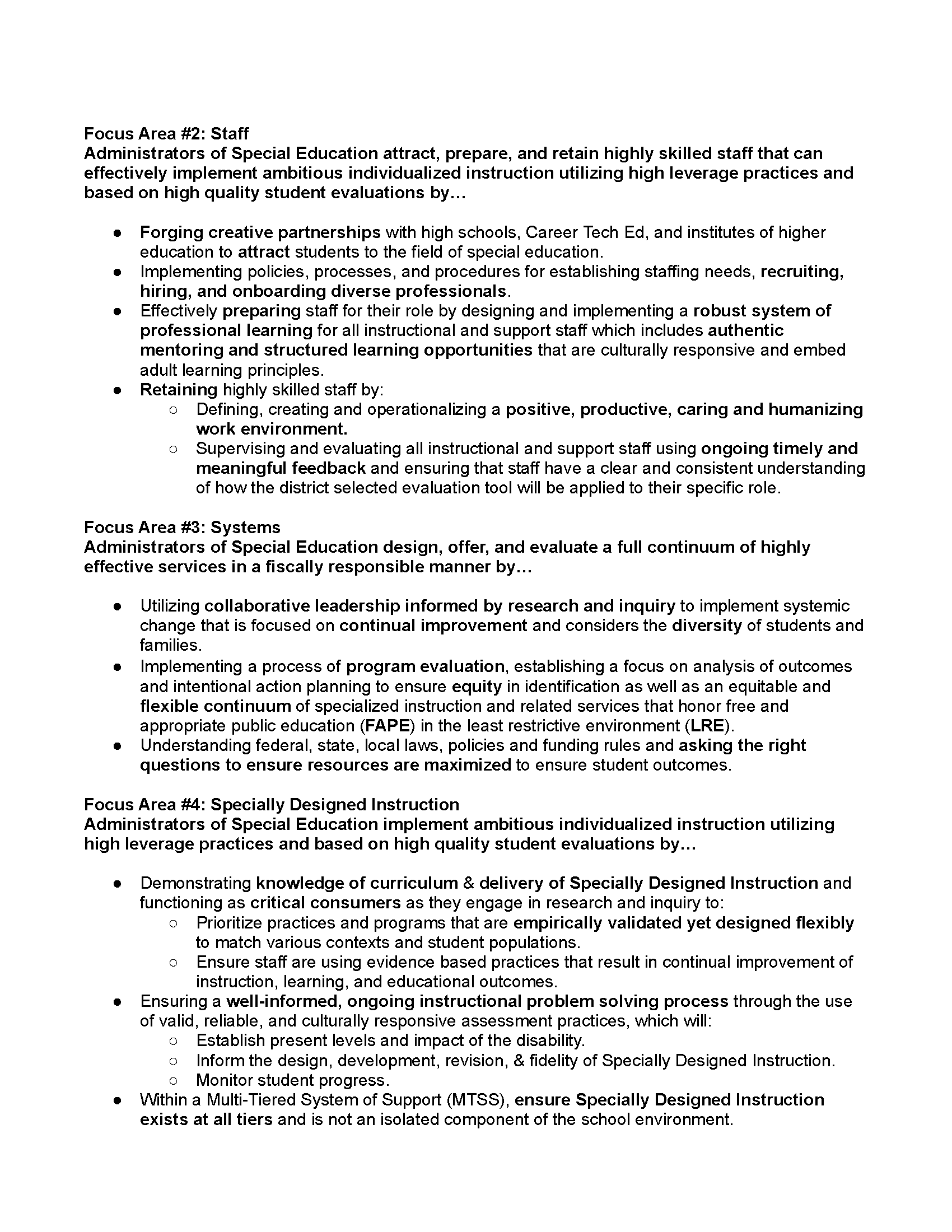About Us
Our Vision
We envision an educational system that meets the needs of ALL students, ensuring that they achieve their full potential.
Our Mission
MAASE provides opportunities for leadership development, collaboration, and advocacy. We do this in partnership with our members - to shape policies and practices to improve outcomes for students with disabilities.
Our Core Beliefs
- All students are general education students
- Students with disabilities (0-26) have the right to receive high quality instruction
- High quality and relevant professional learning for all educators is crucial
- Internal and external collaboration is essential for high quality outcomes
- Administrators must stay engaged and current at the national, state and local levels
- Advocacy is essential in leadership
- Our collective capacity is greater than our individual capacity
- In visionary thinking and courageous decision making
- In inclusiveness demonstrated by a commitment to diversity, caring and respect for the dignity and worth of all individuals


As a CASE Affiliate, we believe
- The community should celebrate human diversity as enriching the whole society.
- All students have a right to a quality education that will enable them to develop to their maximum potential.
- Local administrators are critical change agents who affect the quality and future of special education and the education of students with exceptionalities.
- Educational benefits, measured by individual achievements relative to ability and circumstances should be documented and promoted.
- CASE produces an international, collegial network and opportunities for professional growths.
- Special Education is an interdisciplinary, student support system committed to innovation in education.
- Local administrators make a difference in the quality and future of the lives of individuals with exceptionalities and their families within the educational system and the community.
- CASE is an integral part of the Council for Exceptional Children and provides a unique vehicle to accomplish our respective missions.
CASE Statement of Ethics
The development of a Statement of Ethics is an essential characteristic of a profession and provides one means for the exercise of professional self-regulation. It indicates a profession’s acceptance of the responsibility and trust with which it has been invested by society. Each Special Education Administrator entering the profession inherits a measure of that responsibility and trust and the obligation to adhere to the profession’s code of ethical conduct.
It is the responsibility of a professional association to provide measures to judge the competency of its membership and to evaluate the quality of its services. This concern for quality is the heart of a professional association’s responsibility to the public. A profession must seek control of its practice to guarantee the quality of service. Behind that guarantee are the standards and ethics that offer assurance to the public we serve.
In recognition of the importance of ethics and standards and the need to guarantee quality special education services, the Council of Administrators of Special Education has formulated a set of ethical statements to guide the practice of our profession.
CASE Standards
The Special Education Administrator
- Makes serving and supporting exceptional children and their parents the primary responsibility;
- Strives to be proficient in current professional practice;
- Supports study and research guided by the conventions of scholarly inquire;
- Respects the privacy of students and parents and holds as confidential information in accordance with State/Provincial and Federal laws;
- Regards colleagues, parents and students with respect, courtesy, fairness, and good faith;
- Upholds and advances the values, ethics knowledge and mission of the profession;
- Fosters and supports maximum self-determination and independence on the part of exceptional children;
- Utilizes impartial professional judgment in evaluating the needs of exceptional children and their parents;
- Accepts the responsibility to provide meaningful training experiences to colleagues, general educators, and the public;
- Promotes the general welfare of exceptional children.

